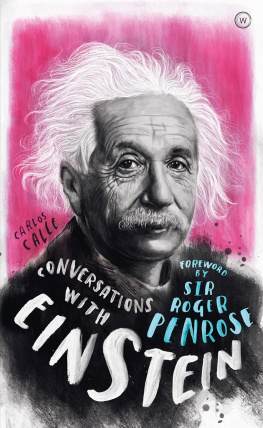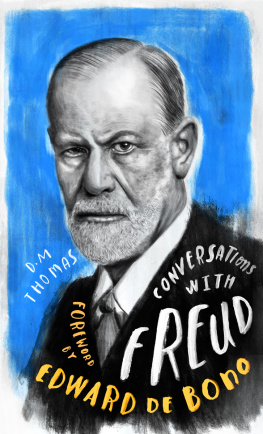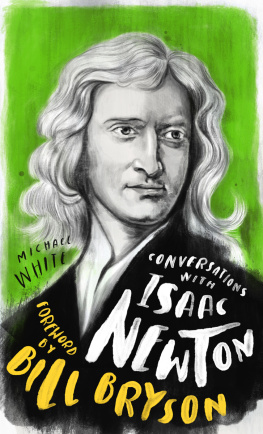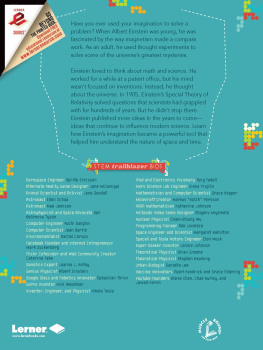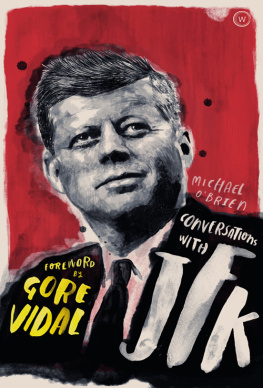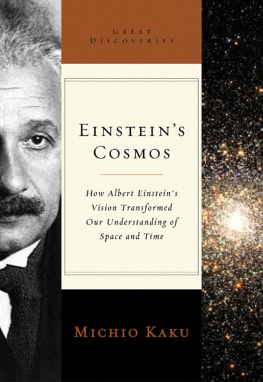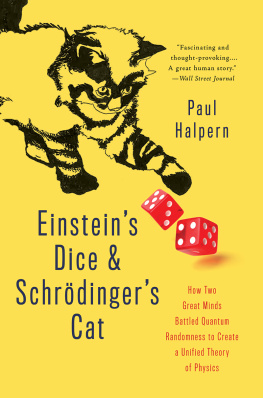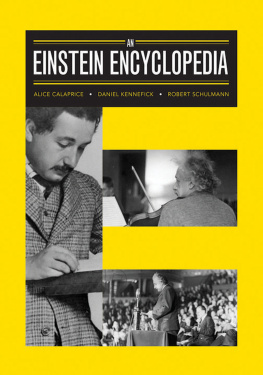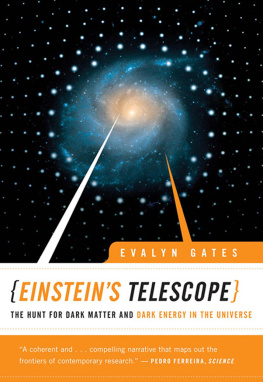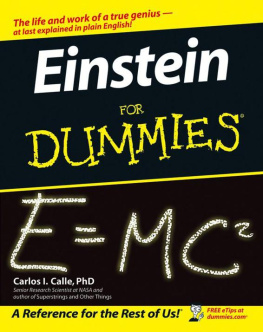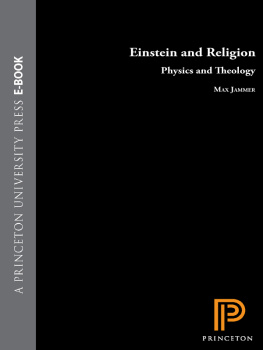

Note to the Reader : This book is divided into two parts: a biographical essay that provides a concise overview of Einsteins life and achievements and a fictional dialogue based on rigorous research, incorporating Einsteins actual spoken or written words, whenever possible, along with rigorously research biographical interpretations of his various views and positions.
Learn about key figures in science, spirituality, art and literature through revealing dialogues based on established fact. Written by a fantastic collection of authors and foreword writers gathered together to delve into the lives and achievements of some of the worlds greatest historical figures, this series is perfect for anyone looking for a quick and accessible introduction to the subject.
OTHER TITLES IN THE SERIES
Published
Conversations with JFK by Michael OBrien;
Foreword by Gore Vidal
Conversations with Oscar Wilde by Merlin Holland;
Foreword by Simon Callow
Conversations with Casanova by Derek Parker;
Foreword by Dita Von Teese
Conversations with Buddha by Joan Duncan Oliver;
Foreword by Annie Lennox
Conversations with Dickens by Paul Schlicke;
Foreword by Peter Ackroyd
Conversations with Galileo by William Shea;
Foreword by Dava Sobel
Forthcoming
Conversations with Freud by D.M. Thomas;
Foreword by Edward de Bono
Conversations with Isaac Newton by Michael White;
Foreword by Bill Bryson

To the memory of my parents, Martin and Lillian
Originally published under the title Coffee with Einstein 2008
This edition first published in the UK and USA 2020 by
Watkins, an imprint of Watkins Media Limited
Unit 11, Shepperton House
8993 Shepperton Road
London
N1 3DF
Design and typography copyright Watkins Media Limited 2020
Text copyright Carlos Calle 2008, 2020
Foreword copyright Roger Penrose 2008, 2020
Carlos Calle has asserted his right under the Copyright, Designs and Patents Act 1988 to be identified as the author of this work.
All rights reserved.
No part of this book may be reproduced or utilized in any form or by any means, electronic or mechanical, without prior permission in writing from the Publishers.
10 9 8 7 6 5 4 3 2 1
Typeset by JCS Publishing Services Ltd
Printed and bound by TJ International Ltd, Padstow, Cornwall
A CIP record for this book is available from the British Library
ISBN: 978-1-78678-384-4
www.watkinspublishing.com
Publishers note: The interviews in this book are purely fictional, while having a solid basis in biographical fact. They take place between a fictionalized Albert Einstein and an imaginary interviewer. This literary work has not been approved or endorsed by Albert Einsteins estate.
CONTENTS
FOREWORD BY SIR ROGER PENROSE
The first third of the 20th century was quite extraordinary, in that our picture of the fundamental nature of physical reality underwent two revolutions and Albert Einstein was a key figure in both.
One of these revolutions had to do with the very peculiar character of the smallest constituents of nature. At the beginning of the century, in order to explain the equilibrium states of matter and light, Max Planck proposed that energy could be transferred from one to the other only in little discrete bundles. No one seemed to appreciate the import of this until Einstein, five years later in 1905, realized that light, which had seemed to have been perfectly explained by Maxwell in the mid-19th century, as interweaving waves of electricity and magnetism, must now be simultaneously understood as made up, at its smallest scales, of little particles! Einsteins picture of light, regarded as mere fancy by most of his contemporaries, was strikingly confirmed by the initially sceptical American physicist Robert Millikan by 1916. This fundamental wave/particle paradox led eventually to the quantum revolution , finally formulated a decade or so later.
Einstein is much better known, however, for his theory of relativity , which radically changed our view of space and time, and then gravitation. Actually, this revolution came in two distinct stages. In 1905, Einstein put forward his special theory, reconciling the seemingly impossible requirements of a finite speed of light, as demanded by Maxwells observationally well-confirmed theory, and a requirement that uniform motion should not be detectable by local measurement. Others before Einstein had been working towards his 1905 resolution of this conundrum, and had already found many essential ingredients, but Einsteins point of view was more far-reaching, and had one particularly noteworthy conclusion: the equivalence of mass and energy, as embodied in his famous E=mc 2. In 1908 the Russian Hermann Minkowski reformulated these ideas as four-dimensional space-time .
Remarkable though special relativity was, it was the natural conclusion of many independent investigations, both theoretical and experimental. Einsteins 1915 general theory of relativity was, however, a bolt from the blue. Einstein had had the extraordinary insight that by bringing in gravity , the relativity principle could be extended from uniform motion to arbitrary acceleration, and Einstein saw that this led to a picture in which Minkowskis space-time must be curved ! Most physicists and astronomers found this hard to take, and confirming observations remained sparse during Einsteins lifetime. Einsteins general relativity is now well tested, and even serves as an invaluable probe for ascertaining mass distributions in distant reaches of the universe.
On the personal side, Einstein was effusive, and enjoyed a joke. He loved music, playing the violin, and also sailing. He felt strongly about politics, espousing pacifist views. In his later years, he cared little about his appearance, though photographs of him in earlier years tell a different story.
The world is enormously the richer for his having been here. Now let us meet him!

INTRODUCTION
Albert Einstein claimed to dislike giving interviews. To be called to account publicly for what others have said in ones name, when one cannot defend oneself, is indeed a sad predicament, he wrote in a short essay. Fittingly, his formula for success in life was: If A is success, I should say the formula is A=X+Y+Z , X being work and Y being play.
And what is Z ?
Keeping your mouth shut.
However, Einstein failed to follow his own formula. He gave countless interviews on a wide variety of subjects as a figure in the public eye, he could not avoid this. However, he never sat down for a comprehensive, structured interview that would cover his entire scientific career, touching on the most interesting aspects of his private life. Thats the intent of my posthumous interview.
What would be better than to have Einstein himself explain his theories to us? But can we understand relativity by reading an interview? Relativity is perceived as being one of the most esoteric theories, understood only by specialists. In fact, the main ideas of relativity are not difficult to grasp. Einstein said once that except for the mathematics all physical theories should be capable of being described in such a way that even a child can understand them.
Next page
